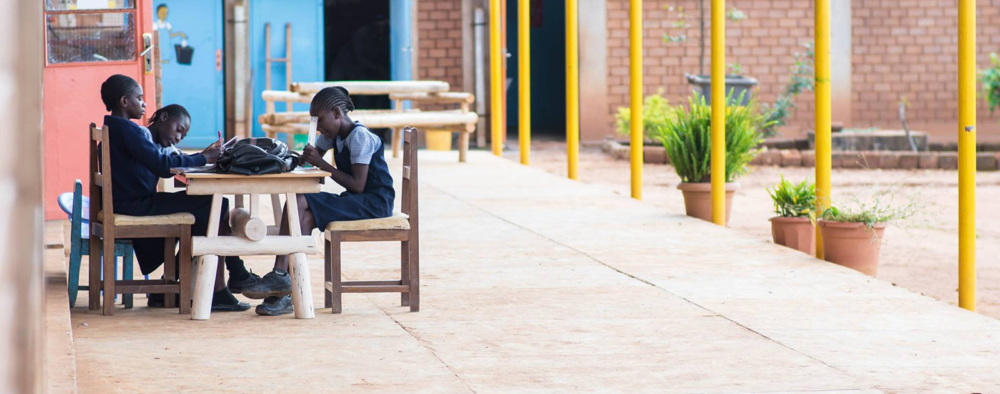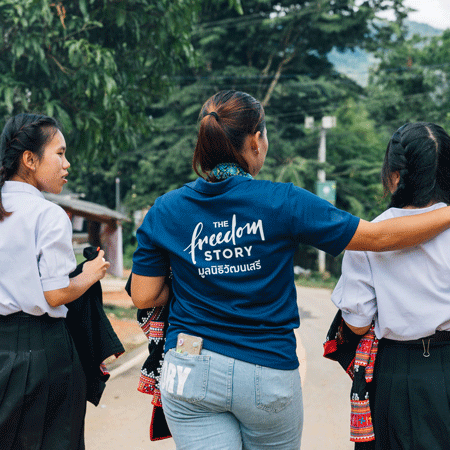
Segurança e bem-estar
Educação, Justiça de gênero, Segurança e bem-estar, Poder da juventude
This year, the award – named in honor of Global Fund for Children’s founder – recognizes our local partners Malaika, Hand in Hand, and Viva a Vida for their success creating lasting change for young people in their communities.
Read on to learn about their life-changing programs for children and youth, and how they plan to use the award.
[image_caption caption=”Students at Malaika Girls’ School. © Malaika” float=””]
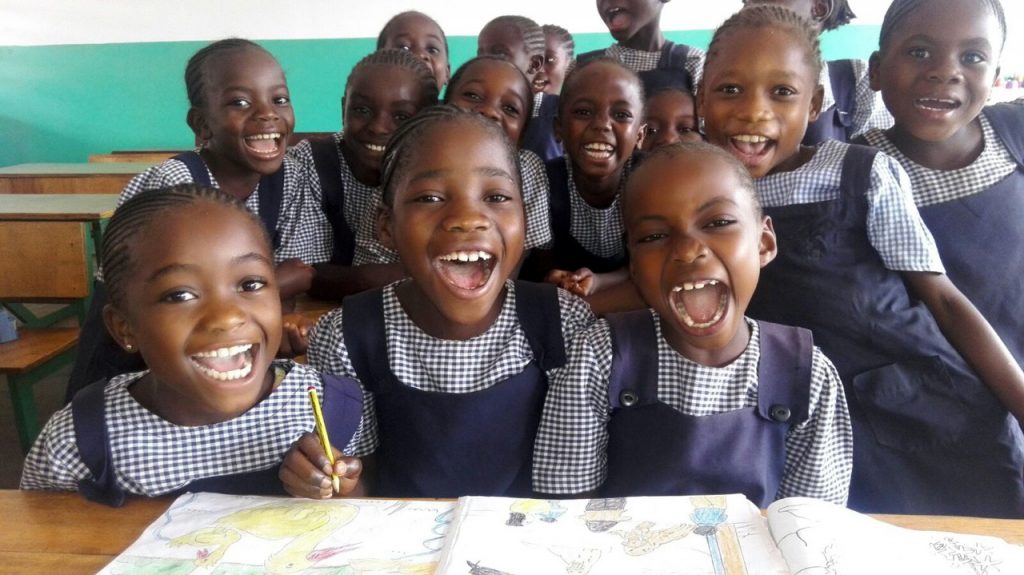
[/imagem_legenda]
In the Democratic Republic of the Congo, Malaika is dedicated to empowering rural girls, most of whom have fled armed conflict in other parts of the country. Through its girls’ school, community center, and clean water program, this Congolese-led organization is transforming the village of Kalebuka and the future of its children.
The Malaika Girls School offers a safe place where more than 300 girls can get a free, high-quality education, receive counseling, and build skills for the future. Extra effort is put into cultivating the students’ leadership potential, including opportunities for service projects, such as planting trees or teaching the community about malaria prevention. Art, music, theater, and physical education classes are also part of Malaika’s robust program, and each girl receives two healthy meals a day.
Malaika also runs a community center, where over 5,000 youth and adults receive training in literacy, farming skills, and entrepreneurship, and participate in community sports initiatives.
From the start, Malaika has used an integrated, community-led approach to creating its programs – an approach that it believes can be replicated and adapted to other communities across Africa. With that in mind, Malaika hopes to use its Maya Ajmera Sustainability Award to develop a formalized model that can be shared with others. It also plans to use the funds for staff leadership development and teacher trainings.
[image_caption caption=”A student participates in an individual therapy session. © Hand in Hand” float=””]
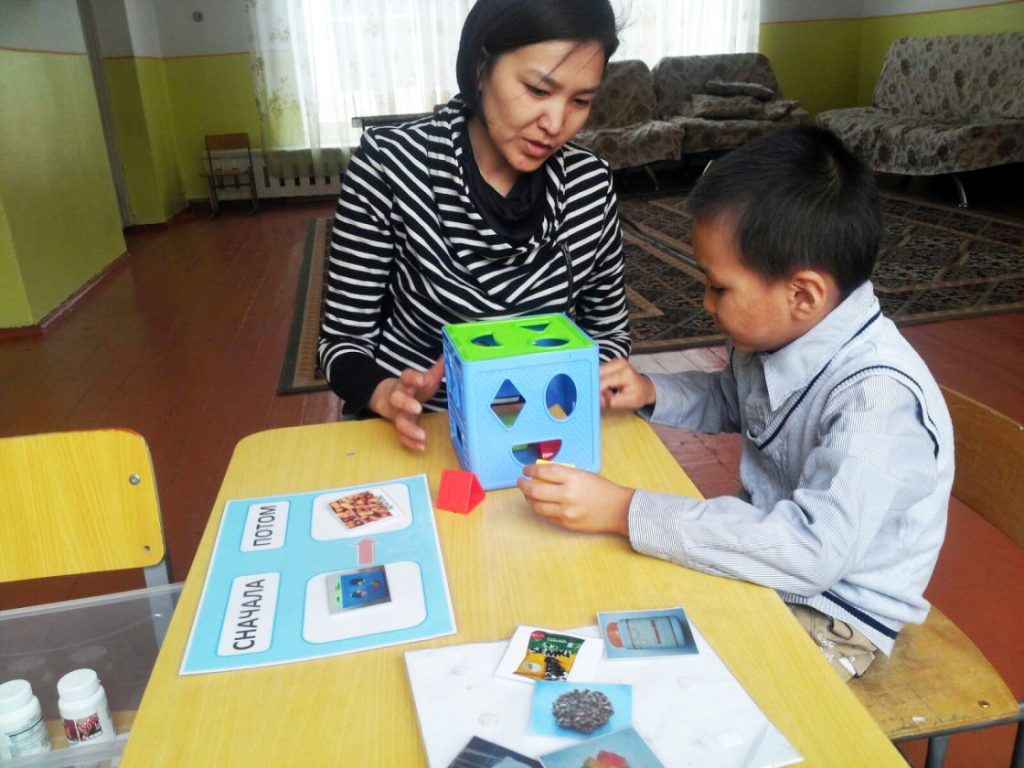
[/imagem_legenda]
A pioneer in its field, Hand in Hand has become the leader in care, diagnosis, and advocacy for children with autism spectrum disorder (ASD) in Kyrgyzstan. In a country where ASD is widely misdiagnosed and misunderstood, Hand in Hand educates parents about the condition and trains healthcare professionals to identify ASD and refer children for proper care. The organization also runs the first and only center in the country that is devoted entirely to assisting children with ASD.
At the center, children take part in daily and weekly treatment, testing, and educational sessions. Each child has an individualized education plan and works with a team of speech pathologists, music therapists, psychologists, and behavioral therapists, who together empower the child to meet their personal needs and goals. The organization also works extensively with parents and caregivers, helping them to better understand their children’s abilities and challenges.
In 2017, Hand in Hand launched a culinary training program for youth with ASD and their parents; goods created by the trainees are sold through a catering business. The organization hopes to use its Maya Ajmera Sustainability Award funds to purchase a branded food truck, which would allow more flexibility and reach through sales at festivals, concerts, fairs, and other events.
Expanding the culinary program would directly increase Hand in Hand’s revenue – and would create more employment opportunities for young people with autism.
[image_caption caption=”GFC staff pose with youth from Viva a Vida. © Global Fund for Children” float=””]
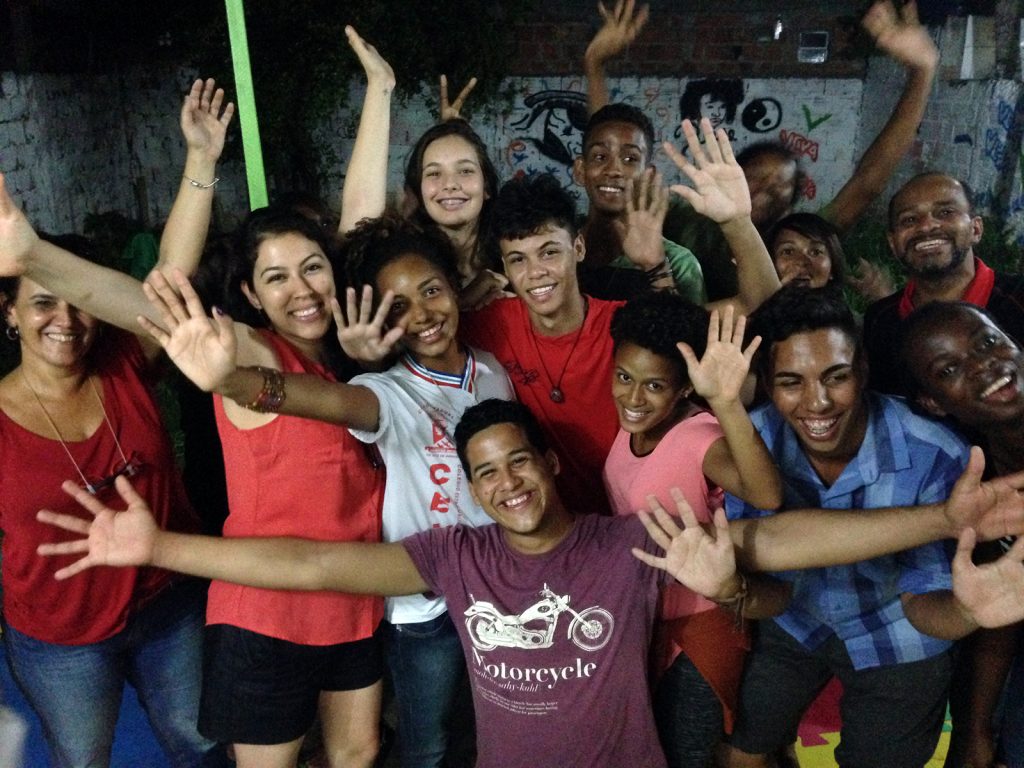
[/imagem_legenda]
Viva a Vida / Camaçari, Brazil
Viva a Vida uses arts education (including theater, poetry, graffiti, and photography) to empower young people in Vila de Abrantes to make healthy choices, develop their self-esteem, and take charge of their futures. This is particularly challenging in this semi-rural community in Bahia, Brazil, where rates of drug-related violence, police violence, teen homicide, and youth unemployment are high.
In partnership with the local high school, Viva a Vida focuses on helping youth to prevent drug abuse, combat violence, and advance human rights. Its youth theater club provides a unique blend of arts and drug prevention as young people create plays to perform for the community. Viva a Vida’s youth group, Vila Jovem, works to develop young leaders who then implement their own community-based drug prevention activities.
In recent years, as Vila Jovem has led numerous projects with other children and youth from Vila de Abrantes, these young leaders have expressed interest in adopting a more formal role as “knowledge multipliers” in the community. Viva a Vida wants to use its Maya Ajmera Sustainability Award to make this dream a reality by expanding their leadership training and connecting them to peer leaders and youth political movements. The organization will also use some of the funds to establish its first Youth Management Commission – a group of young people within Viva a Vida’s Board who will contribute to the organization’s projects and strategy.
Each year, GFC offers the Maya Ajmera Sustainability Award to a few of its highest-achieving partners. Since 2005, nearly 150 community-based organizations from 48 countries have received the award and used the funds to support their long-term stability. Learn more about the award.
Header photo: Malaika students in secondary school study for their exams. © Malaika
